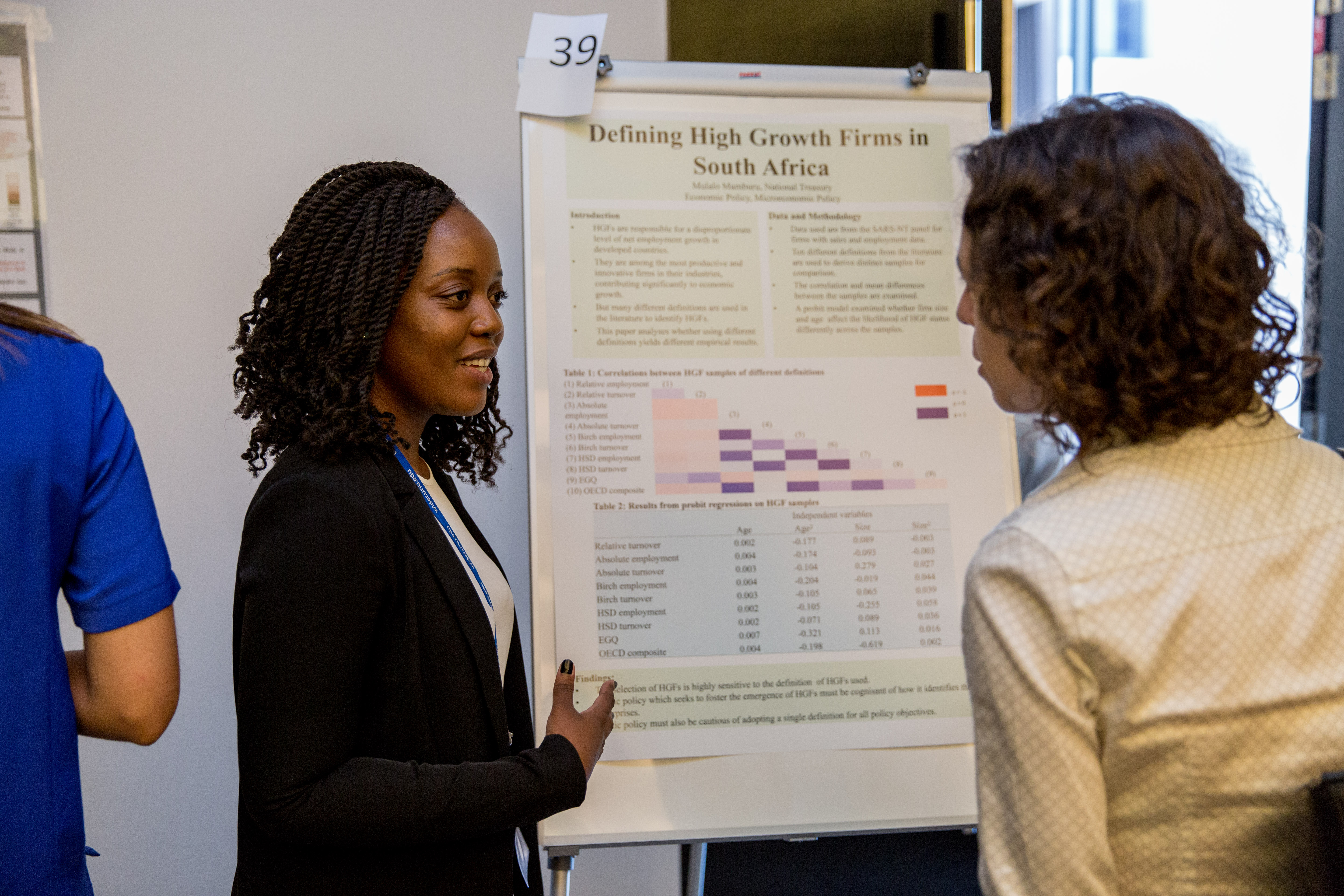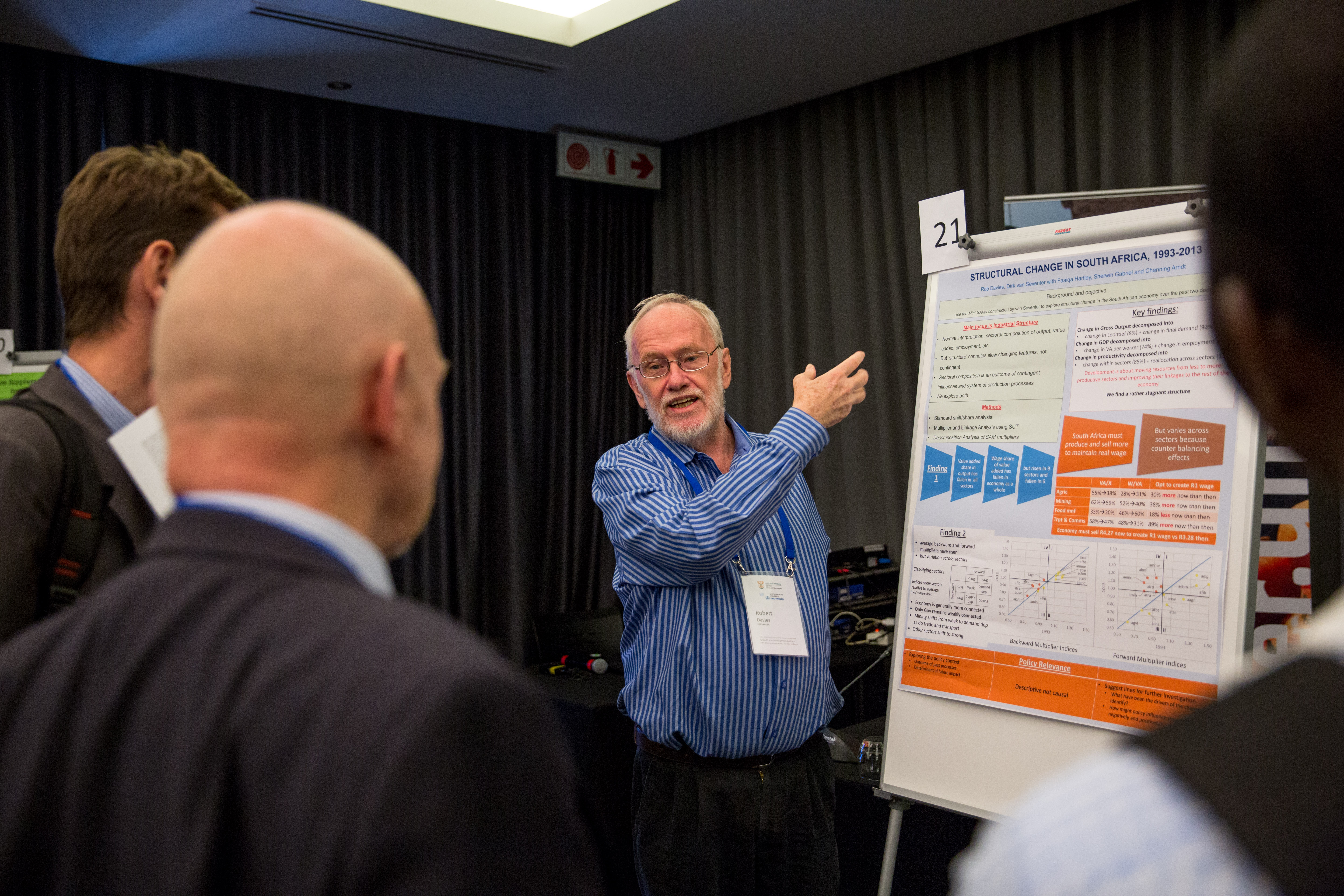About
Poster session - Public economics for development
 There will be a special poster session in the afternoon of 5 July 2017. Up to 22 posters will be presented in a suitable venue at conference premises and they will be displayed throughout both conference days. Authors are requested to illustrate their findings by displaying graphs, photos, diagrams, and a small amount of text.
There will be a special poster session in the afternoon of 5 July 2017. Up to 22 posters will be presented in a suitable venue at conference premises and they will be displayed throughout both conference days. Authors are requested to illustrate their findings by displaying graphs, photos, diagrams, and a small amount of text.
During the special poster session, the author of the study being presented will stand in front of the poster. To start the poster session, a bell will ring. The author will give a 5-minute presentation to the assembled audience. An additional 2.5 minutes will be allocated for questions. After these 7.5 minutes, the bell will ring to mark the end of the presentation and the audience will be given 1 minute to move on to whichever poster they choose. The bell will ring again to mark a new round of presentations. Presenters should be ready to present six times during the session.  Participants will in this way be able to engage with a broad selection of the research on display. Any remaining time will be allocated to informal discussions where conference participants will be able to circulate among the posters and ask further questions. Presenters are asked to remain by their poster boards for the duration of their assigned poster session. Copies of the paper can be brought to distribute, but will not be produced for you.
Participants will in this way be able to engage with a broad selection of the research on display. Any remaining time will be allocated to informal discussions where conference participants will be able to circulate among the posters and ask further questions. Presenters are asked to remain by their poster boards for the duration of their assigned poster session. Copies of the paper can be brought to distribute, but will not be produced for you.
 Join the network
Join the network